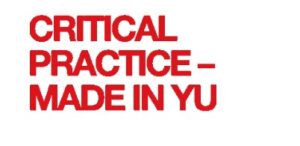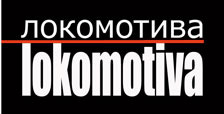
A conceptual and sociocultural framework
The Critical Practice programme is oriented towards empowering discursive reflections on contemporary performing arts while enabling their breakthrough into the larger public.
In contextual terms, it is focused on, but not restricted to, the post-Yugoslav region. Among the reasons for such an orientation are, on the one hand, a lack of continual and publicly visible critical writing about contemporary performances and performing arts events in the region and, on the other, the strong recent development in performing arts theory coming from this context. Therefore, this venture draws on the already existing platforms generated by the magazines TkH (Belgrade), Maska (Ljubljana) and Frakcija (Zagreb), as well as the Nomad Dance Academy (The Balkans). Its purpose is to advance the professional development of emerging authors (writers, critics, researchers, theoreticians) from the region and elsewhere and to encourage a more profound, more visible and more accessible critical reflection on the contemporary performing arts, enhancing their visibility and stimulating dialogue with audiences.
However, the programme is not restricted to the region. The importance of not being restrictive in those terms lies in our belief that only through communication and debate with colleagues from different contexts, only through learning about a variety of local scenes as well as about the international scene can an art critic acquire the multifaceted knowledge, skills, vocabularies and mindsets necessary for a relevant contribution to the complex art world of today.
With such an ambition, the disciplinary framework of the programme is predicated on issues, questions and knowledge coming from critical theory, artistic practice and cultural policy. Commonly seen as separated fields of knowledge and expertise, here theory, artistic practice and cultural policy are considered interconnected constituents of the performing arts scene. In our view, there is no critic who can profoundly reflect on a piece of art without being aware of the cultural context or the theoretical debate that surrounds it or that it provokes. Against this backdrop, our programme is envisaged to produce a vivid transversal discussion within and about the performing arts – among the participants as well as in public.
Content-wise, the programme is not centred by a subject to be advocated. It is framed instead through several thematic focuses that are of concern to us. They will be formulated as conceptual lenses through which various phenomena (performances, festivals and other events) will be observed. Possible focuses are: registers of politicality in the performing arts: content, medium/form, and conditions of work; ‘the cult of personality’ in contemporary dance and performance; self-organization and DIY aesthetics; somatic practices and post-Fordist labour; Go international, or else – stay local; etc.
Within our programme we understand the notion of critical practice not only as a topic to be studied and an activity to be done, but also as an all-compassing politics and ethics of working together. This will oblige all of us involved in the programme to engage in self-reflection, to give thought to our doings in critical dialogue, learning how to question our approaches and positions by means of analysis and argumentation while fostering processes of learning by doing.
Accordingly, the participants and the mentors are seen as a working group of colleagues facilitated by the mentors, wherein mutual respect and confidence constitute the backbone of collaboration. This might sound dated and utopian—or even hippyish—making our challenge all the more obvious: to create a temporary structure that will render it possible.
Timeframe and place/space
Critical Practice (Made in Yugoslavia) is a long-term programme: the first programme lasted from 2013 to 2018 and the second cycle will last from 2021 to 2024.
The first programme consisted of three one-year cycles, while the second one consists of two one-and-a-half year cycles focused on education and practical work of participants.
The programme cycles have a modular structure, combining A) seminars, workshops and practical engagement at certain events (festivals, conferences, exhibitions, etc.) as gatherings and group work structures, and B) the continual individual or collective work of participants. Within each cycle, ca. four gatherings in different European cities are organised. Furthermore, there are occasional Zoom conferences, regular email communication and the programme’s blog as well as the possibility of self-organised work.
In accordance with the modular structure of cycles, the Critical Practice is a non-residential programme. The participants physically attend group work structures only, otherwise working from home / online.
The last phase of the each programme is dedicated to publishing a volume comprising a selection of writings in which the participants of all three cycles are invited to take part.
Results and outcomes
- Hard copy folders containing the body of instant writings about the events attended / Apart from writing, it is possible to organise other formats of instant critical practice (e.g. talks, discussions, etc.).
- Publishing on the website of the venues that organise events that are attended
- Blog of the Critical Practice (Made in Yugoslavia) edition (criticalpractice-madeinyu.dancestation.org)
- Publishing within already existing journals and magazines for the performing arts
- Editing of participants’ writings at the end of each cycle (for instance, as a chapter in a magazine, online volume, etc.)
- A publication made at the end of the programme comprising a selection of writings produced within all three cycles
Participants
Number of participants: 6–8 per cycle
Structure of the participants:
- Ca. MA level of education in art, humanities or social sciences
- No age limit
- No official diplomas required
- Balance between the region and other, mostly European contexts.
Participation in the programme (seminars and lectures, festivals, conferences, consultations, mentoring, and so on) as well as most of the material costs of attending gatherings and group work structures (accommodation and travel) will be covered by the scholarships provided from the programme’s budget. The amounts available vary, depending on annual budgets; therefore, the exact information will be announced in the call for applications for each cycle.
Participants are requested to attend all gatherings and to engage in regular individual and collective work. In other words, it is not possible to attend one module only or to attend only seminars, for instance. All participants apply for and will be accepted for one full cycle of the programme.
Participants who apply through the open call will be selected by the programme team, a member of the NDA network or other partner, and a participant of previous Critical Practice editions.
Nomad Dance Academy www.nomaddanceacademy.org
Station Service for contemporary dance, Belgrade www.dancestation.org
Lokomotiva – Centre for New Initiatives in Arts and Culture, Skopje www.lokomotiva.org.mk
apap – Feminist Futures www.apapnet.eu
Partner organizations
Nomad Dance Academy www.nomaddanceacademy.org
Station Service for contemporary dance, Belgrade www.dancestation.org
Lokomotiva – Centre for New Initiatives in Arts and Culture, Skopje www.lokomotiva.org.mk
Tala Dance Center, Zagreb www.tala.hr
Workspace, Brussels www.workspacebrussels.be
Het Veem theater, Amsterdam www.hetveemtheater.nl
Tisch School of the Arts, NYU, New York https://www.tisch.nyu.edu/
Partnership between Critical Practice and Tisch School of the Arts (New York University) is made possible with support from the Tisch Initiative for Creative Research.
This programme is realised as an edition of Critical Practice – training for emerging dance writers, initiated within the Life Long Burning project www.lifelongburning.eu.
The programme 2021-2024 is realised as an edition of Critical Practice as part of the apap – Feminist Futures project and is supported by the Creative Europe Programme of the European Union.
